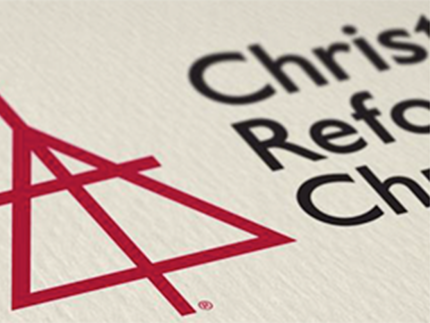Gravamen: What It Is and How to Use It

The Office of General Secretary received many questions from CRC officebearers and churches about gravamina last fall and we are aware that several overtures are being considered by the classes. As part of our effort to serve CRC congregations and officebearers, we are making research available to assist classes, congregations, and officebearers in their discussions. Please also see "Summary of the History behind the Guidelines for Gravamina." Note that this response was written in 2023 and that the decisions of Synod 2024 clarified gravamina further, explaining that they are not to be used as "exceptions" to a belief, but instead are the start to a process. They also added time limits to confessional difficulty gravamina process, with an expectation that councils will help an officebearer resolve their difficulty, remove themselves from office, or file a confessional-revision gravamen within three years.
In the CRCNA we have recently had discussions about the proper pronunciation of the term gravamen (gra-VAY-men, gra-VAH-men, or GRA-va-men?)—a word that is included in the Church Order but has seen little use in recent years until discussions that have come up following synod in June 2022.
For the past several months, the term gravamen has been much discussed, at least in council and classical leadership circles, but the questions about it go deeper than pronunciation. This article aims to provide some clarity about what a gravamen is, what the history of the gravamen process has been within the CRCNA, and how gravamina (plural) can help us to have important conversations about our beliefs and to stay together as a church today.
Gravamen is an English term that comes from the Latin verb gravare, meaning "to burden," and from the Latin adjective gravis, meaning "heavy." This term is most often used to refer to part of a grievance or complaint that has weight or substance.
The gravamen process that is part of Reformed polity provides guidance for how Christian Reformed people can have discussions about beliefs that are based on Scripture and described in the Reformed confessions.
Gravamina are used by those who sign the Covenant for Officebearers as a way of affirming “three confessions—the Belgic Confession, the Heidelberg Catechism, and the Canons of Dort—as historic Reformed expressions of the Christian faith, whose doctrines fully agree with the Word of God. These confessions continue to define the way we understand Scripture, direct the way we live in response to the gospel, and locate us within the larger body of Christ” (see Church Order, Art. 5).
Signers of the Covenant for Officebearers also make the following pledges: “Grateful for these expressions of faith, we promise to be formed and governed by them. We heartily believe and will promote and defend their doctrines faithfully, conforming our preaching, teaching, writing, serving, and living to them. . . . We also promise to present or receive confessional difficulties in a spirit of love and fellowship with our brothers and sisters as together we seek a fuller understanding of the gospel. Should we come to believe that a teaching in the confessional documents is not the teaching of God’s Word, we will communicate our views to the church, according to the procedures prescribed by the Church Order and its supplements. If the church asks, we will give a full explanation of our views. Further, we promise to submit to the church’s judgment and authority.”
The gravamen process is essential to helping officebearers live out this last part of the agreement. It helps officebearers be faithful to their beliefs, as outlined in the confessions, by giving them a way to express concerns about these human-written documents, in case they come to believe that some teachings in them are not the teaching of God’s Word.
In our history there have been times when we have had to revise a confession (the Belgic), add a footnote (the Heidelberg), or even declare that certain parts are not binding on officebearers (such as the Heidelberg Catechism’s description of the Roman Catholic Mass). As Reformed people, we are not barred from having such discussions; in fact, we must do so as we seek to be faithful hearers and doers of the Word.
For officebearers, it is a matter of honesty and integrity, along with being part of the promise made by signing the Covenant for Officebearers, to bring such concerns to the church. This process should be encouraged, not discouraged!
With that said, it is important to note that concerns which rise to this level should be concerns with the doctrine of the church—not with the way the doctrine is worded or formulated, or with any theological deductions that are made from those doctrines. This is made clear in the “Guidelines and Regulations re Gravamina” included in the Supplement to Church Order Article 5 after the Covenant for Officebearers.
Two types of gravamina are described there—a confessional-difficulty gravamen and a confessional-revision gravamen. The guidelines for gravamina describe a confessional-difficulty gravamen as one "in which a subscriber expresses personal difficulty with the confession but does not call for a revision of the confessions."
This does not necessarily mean that someone who submits a confessional-difficulty gravamen is on a path to submitting a confessional-revision gravamen. These are two different types of gravamina.
The guidelines say that a confessional-difficulty gravamen “is a personal request for information and/or clarification of the confession. Hence this type of gravamen should be dealt with pastorally and personally by the assembly addressed," and this statement is an explanation of why "in all instances of confessional-difficulty gravamina, the matter shall not be open for discussion by the whole church."
Because confessional-difficulty gravamina are submitted to the councils of officebearers and are not open for discussion in the church, we have no way of knowing how many have been submitted over the years. We do know that only two confessional-difficulty gravamina have reached synod—one in the 1940s that was not resolved before the officebearer passed away, and one in the 1970s that synod decided to classify as a confessional-difficulty gravamen. That classification occurred right after synod adopted the guidelines for gravamina to be included in the Church Order Supplement.
While this action named two categories of gravamina, it did not create them. Synod’s action was in response to previous occurrences of confessional difficulties and to requests to clarify the process of addressing gravamina in order to ensure the involvement of the churches in those discussions.
It is very important to note that this process is intended to promote confessional subscription and integrity of belief—as well as unity in the church. Officebearers are required to affirm the doctrine of the church as found in the Reformed confessions. When they submit gravamina by way of the process outlined in the Church Order, they are continuing to uphold the beliefs in our confessions. This is a matter of integrity and honesty, and without the gravamen process, officebearers might avoid the risk of sharing their concerns.
It is also important to clarify that the process of submitting a confessional-difficulty gravamina does not offer a "local option" but rather an opportunity for officebearers to make known their conscientious concerns and difficulties so that those matters can be confidentially and pastorally judged, clarified, and adjudicated by the council. There is an expectation that the officebearer will continue to uphold the confessions of the church and the interpretations of the confessions.
A council receiving a gravamen is not being asked to agree with it or to make the gravamen’s point of view another option that CRC people can believe. The council receives the gravamen as a “personal request for information and clarification.” The council may discern that the officebearer's difficulty is really not a difficulty at all, they may clarify the confessional matter with the officebearer, or they may decide whether the person's difficulty is such that he or she can no longer serve.
The gravamen process is intended to promote honesty. It would be easier for an officebearer to simply be quiet. Instead, by raising concerns via the gravamen process, the officebearer opens the door for conversation and discussion. This process also helps to avoid future conflict and sets expectations and a clear process, which provide some ground for unity.
It is also helpful to know that similar processes are in place for professors at Calvin University who are required to sign the Covenant for Faculty Members, and for members of the Council of Delegates who are required to sign a statement of Agreement with the Beliefs of the CRCNA.
Throughout the years professors and officebearers have engaged in this process, submitting to the judgment of the board or the council, which has the responsibility to decide whether the person’s difficulty is such that they can no longer serve as a teacher or church leader. Only the body that engages in conversation with the individual can make that decision. If, however, an officebearer is proposing that a confessional document be revised, then of course the broader church would need to be part of the discussion.
We do know that gravamina have been submitted over the years regarding confessional matters such as infant baptism, limited atonement, and reprobation.
In today’s situation, Synod 2022 declared the interpretation of a word in the Heidelberg Catechism (“unchastity” in Q&A 108) to include a list of particular sexual sins, and synod declared that to be the CRC’s official interpretation of that confession. Synod 2022 also went further and declared its interpretation to have confessional status, meaning that officebearers and confessing members would not be free to disagree with that interpretation of the confessions, as they are allowed to do with other synodical pronouncements on doctrinal and ethical matters.
Synod 2022 decided not to put a footnote in the Heidelberg in connection with its decision, but, given that synod has never before declared one of its decisions to be an interpretation of a confession and then also stated that it “therefore” has confessional status, there have been many questions about that decision, as well as about the use of gravamina.
Synod 2022 knew from the overtures submitted in response to the Human Sexuality Report that their decision about confessional status would immediately put scores of officebearers, church members, and congregations into conflict with the confessions as interpreted by synod. The proper process by which this disagreement can be expressed by officebearers on a confessional matter is the gravamen process. While few probably expected this process and its terminology to return so recently to widespread use, that has been the result of Synod 2022’s decisions.
In conclusion, we need to keep a few lessons in mind regarding gravamina. First, we need to remember that this process is intended to promote confessional subscription and integrity of belief. When officebearers submit gravamina by way of the process outlined in the Church Order, they are upholding the confessions, the Church Order, and the Covenant for Officebearers.
Second, both those submitting and receiving gravamina (of any type) do so “in a spirit of love and fellowship . . . as together we seek a fuller understanding of the gospel.”
Finally, in making use of the gravamen process, officebearers promise “to submit to the church’s judgment and authority” about the confessions (and their interpretations). In this way, our Church Order promotes unity in the church and among officebearers.
So, however you want to pronounce it (Webster’s dictionary recommends “gra-VAY-men”), now you know that the process of submitting a gravamen, regardless of its rather rare usage to date, is an important part of Christian Reformed Church polity and hopefully will be significant in promoting the unity of the church.


